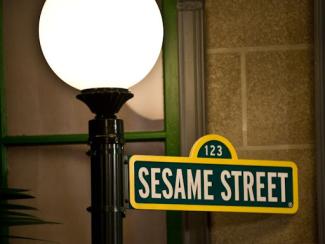
In 1970, Mississippi’s all-white State Commission for Educational Television gathered for a critical discussion: whether or not Sesame Street should stay on the air. And the vote to ban the children’s series won.
They axed the show because it reportedly had “a highly integrated cast of children.” Joyful Black children playing and learning, especially alongside white children, was a problem. Shreveport, Louisiana, shared that sentiment, dropping the program because it was “too [B]lack.”
For 22 days, parents protested the decision, forcing the board to put it back on the air. Just a year later, local police arrived decked out in riot gear when the parents’ group invited the cast to visit. Still, their act of protest was successful.
Today, Jackson, Mississippi, is considering plans for a “separate” white judicial district. Across the country, books that offer representation outside of anti-Black norms are getting banned.
But Sesame Street is still standing. They’ve even been running a community program offering resources to children and their parents to cope with all the violence and racial trauma in the news.
The anti-Black censorship and policing of education runs deep in this country. But just like we did in the 70s, we can decide what we want from our books, screens, and classrooms now. How can you educate and uplift the youth in your life?